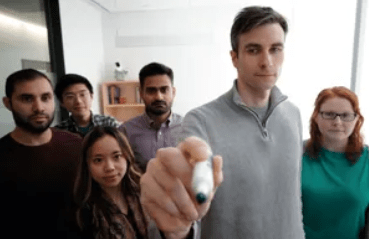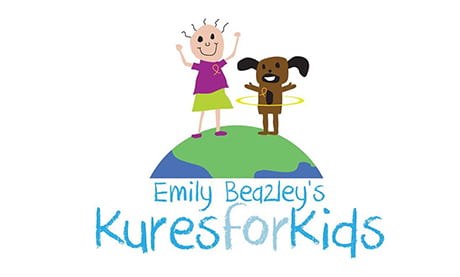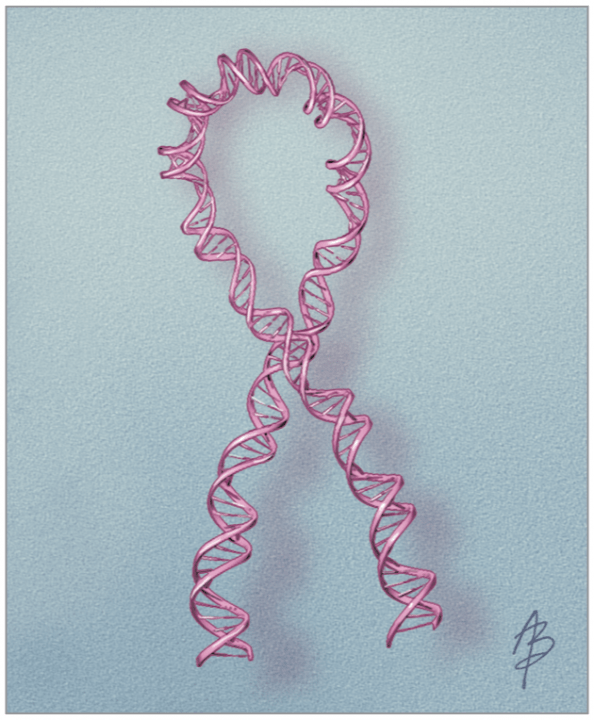
News
-

Playing a long game
Michael Eisenstein | Nature Methods | 30 July 2019 This past February, Adam Phillippy of the National Human Genome Research Institute showed the genomics community something it had never seen before: a complete human chromosome. It’s no secret that the human genome sequence published in 2000 was merely a fragmented rough draft, and nearly 20…
-

Efficient de novo assembly of eleven human genomes using PromethION sequencing and a novel nanopore toolkit
Present workflows for producing human genome assemblies from long-read technologies have cost and production time bottlenecks that prohibit efficient scaling to large cohorts. We demonstrate an optimized PromethION nanopore sequencing method for eleven human genomes. The sequencing, performed on one machine in nine days, achieved an average 63x coverage, 42 Kb read N50, 90% median…
-

Mouse, Not Just Tick: New Genome Heralds Change in Lyme Disease Fight
Infection Control Today | Jul 25, 2019 As Lyme disease increases, researchers have taken a significant step toward finding new ways to prevent its transmission. The experts, who include a pioneer in Lyme disease discovery, have sequenced the genome of the animal carrying the bacteria that causes the illness. The advance by researchers at the…
-

St. Baldrick’s Foundation grant funds Treehouse Childhood Cancer Initiative
Emily Beazley Kures for Kids Fund Hero Award provides $400,000 for efforts at UC Santa Cruz to bring comparative genomics analysis to pediatric cancer patients Tim Stephens | UC Santa Cruz | July 23, 2019 The St. Baldrick’s Foundation, the largest private funder of childhood cancer research grants, has awarded a fourth year of funding to…
-

Dream job: Combining science and illustration
Ph.D. student Jessica Kendall-Bar is fascinated by how wild marine mammals sleep, and also passionate about using art to explain science UCSC.edu | July 16, 2019 | Peggy Townsend Burning Man isn’t a place where you’d expect to find a presentation on research into the sleep patterns of marine mammals. But the week-long extravaganza of…
-

Study pinpoints cell types affected in brains of multiple sclerosis patients
University of Cambridge | JULY 17, 2019 Scientists have discovered that a specific brain cell known as a ‘projection neuron’ has a central role to play in the brain changes seen in multiple sclerosis (MS). The research, published today in Nature, shows that projection neurons are damaged by the body’s own immune cells, and that this…
-

Holger Schmidt receives IEEE Photonics Society Engineering Achievement Award
UCSC.edu | July 3, 2019 | By Tim Stephens Holger Schmidt, professor of electrical and computer engineering at UC Santa Cruz, has been chosen to receive the Engineering Achievement Award of the IEEE Photonics Society. The award recognizes Schmidt and his long-time collaborator, Aaron Hawkins at Brigham Young University, for “the invention and development of optofluidic waveguides…
-

Q&A: Life science startup, Claret Bio, comes out of stealth mode
Santa Cruz Tech Beat | June 27, 2019 I met Kelly Harkins Kincaid about two years ago. She was Kelly Harkins back then and she was fully engaged in starting up her startup, Claret Bio, but wasn’t ready for the company to be out of stealth mode. Naturally, I asked her to please let me…
-

Barriers to accessing public cancer genomic data
Katrina Learned, ann Durbin, Robert Currie , Ellen towle Kephart, Holly C. Beale, Lauren M. Sanders, Jacob Pfeil, theodore C. Goldstein, Sofie R. Salama, David Haussler, Olena Morozova Vaske & Isabel M. Bjork. Although increasingly recognized as critical to genomic research, genomic data sharing is hindered by an absence of standards regarding timing, patient privacy,…
-

Detecting human diversity
Variation graphs facilitate genomic discovery Katharine Miller | Inquiry UCSC After the first human genome was successfully sequenced in 2003, researchers established it as the reference genome. It became the singular, highest-quality, most well-understood, standardized genome against which all other human genomes would be mapped and compared for the foreseeable future. It turns out this commitment to a single…
-

Gifts accelerate research, from the galactic to the microscopic
Gifts from Ken and Gloria Levy support biomedical discovery that may help cancer patients as well as research on dark matter halos, some of the universe’s largest structures UCSC.edu | June 04, 2019 | J.D. Hillard Professor Daniel Kim’s lab works on technology it hopes will help doctors save lives, while astronomy grad student Enia…
-

Taking the Uncertainty Out of Interpreting BRCA Variants
JAMA Network | Rebecca Voelker, MSJ | March 20, 2019 The Problem Testing for BRCA1 and BRCA2 mutations identifies both benign and pathogenic genetic variants. But information about specific variants, particularly those of uncertain clinical significance (VUS), often isn’t systematically curated, expertly reviewed, or easily searchable. In addition, different laboratories sometimes interpret test results differently. Downstream Risk Some patients…